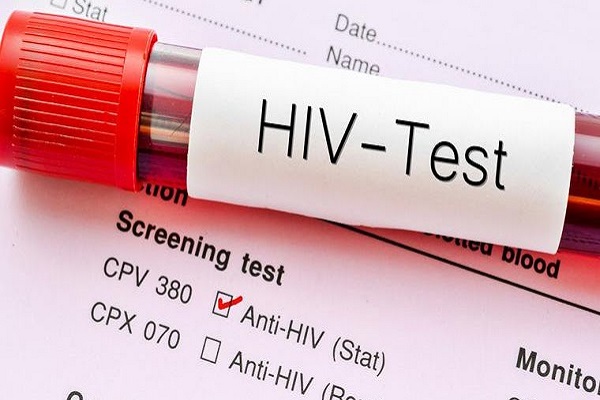A total of 23,495 people tested positive for HIV in the first half of this year, according to statistics from the National STIs and HIV/AIDS Control Programme.
As result, a network of institutions leading the HIV and AIDS response in the country has begun national stakeholder engagements as part of processes to review interventions for better outcomes.
The Ghana HIV&AIDS Network (GHANET), a non-profit organisation leading HIV interventions in the country, said the move had become necessary because, despite efforts at reducing new infections and ending AIDS, the desired impact seemed far from being achieved.
Speaking at one of such stakeholder engagements in Accra, the President of the network, Ernest Ortsin, said the surge, coupled with undesired outcomes, justified how critical it had become for stakeholders to rethink existing interventions to help keep the surge under control.
The workshop was organised by the network, in collaboration with the National AIDS Control Programme (NACP).
It was on the theme: “Rethinking HIV interventions for vulnerable populations in the country”.
Participants included media persons, policymakers, representatives of security agencies, traditional and religious leaders, and market women, among others.
They deliberated on new programmes and interventions to adopt for action in the next Country Operational Plan (COP).
A public health consultant and Vice-Chair of the Country Coordinating Mechanism of the Global Fund, Dr Nii Nortey Hanson-Nortey, mentioned the key focus of national interventions to include mass education, testing, administration of pre-and post-exposure prophylaxis, promotion of condom use and anti-retroviral treatment.
He, however, said stigmatisation, the use of only a clinical approach for the administration of pre-and post-exposure prophylaxis and anti-retroviral treatment as some of the major setbacks in its effort.
The consultant added that stigma reduction, risk and behavioural change communication, which were some of the pragmatic measures in tackling the spread of the disease, were characterised by non-targeted and fatigued messaging, as well as cultural norms, and said they were the reasons a rethinking was necessary.
Dr Hanson-Nortey also claimed that there were indications of insufficient political will, weak health systems and inadequate support for community-based organisations which were hampering progress.
“People should begin to rethink and not hide their HIV/AIDS status; after all, it is like a chronic disease which is not only acquired through sex but also contracted,” he said.
He also said there should be access to condoms for both genders, irrespective of their ages since research had shown that increasing the availability of condoms helped in the reduction of the HIV/AIDS burden.
“Our social system makes it difficult for a young person to go to the pharmacy to purchase a condom because he/she will be tagged as being a prostitute and soliciting for sex,” he said.
According to him, stigma in communities had a widespread impact on both HIV/AIDS treatment and prevention, including making individuals less willing to be tested or put on treatment.
They said people must know their status to ensure maximum treatment percentage coverage, which could lead to a high percentage of people with viral load suppression and unable to transmit.
They also advised people to stay safe by adhering to preventive protocols, such as avoiding unprotected sex with people they were not sure of, among other measures.
The NACP Monitoring and Evaluation Officer, Rev. Kenneth Ayeh Danso, said in 2021, data estimated that 345,599 people lived with HIV and AIDS in the country.
“As of June 2022, only 262,042 people were on anti-retroviral therapy (ART), consisting of five per cent children and 75 per cent females.
“The statistics are an indication that men are not reporting, a situation that needs to be reversed for us to reach the 95-95-95 goals,” he said.
Latest Stories
-
Prez Mahama picks 52-year-old teacher as West Gonja MCE
3 minutes -
We have a good team to beat Senegal – Kim Lars Bjorkegren
14 minutes -
America’s 10% Tariff: Africa’s Golden Opportunity
1 hour -
Salaga South MP advocates reparations to Africa
2 hours -
Don’t celebrate yet, declined T-bill yields artificial – IPPA to Finance Minister
9 hours -
Hidden epidemics in Africa and power of serosurveillance
9 hours -
Policy rate hike came at a wrong time; government must be financially disciplined – IPPA
9 hours -
Telecel CEO calls for collaboration between academia and industry for nation-building
10 hours -
Telecel Enterprise Business Director advocates strengthened support for women entrepreneurs
10 hours -
Chamber of Licensed Gold Buyers hails enactment of GoldBod Act
10 hours -
Securing Rugby’s Future: Morocco welcomes 2025 international seminar on African Rugby Development
11 hours -
UHAS commits to advancing role of sports in public health and national dev’t
11 hours -
FixTheCountry to stage May 1 protest over gov’t inaction on illegal mining
11 hours -
Some film producers wanted to end my dreams – Yvonne Nelson
12 hours -
Daily Insight for CEOs: The CEO’s guide to financial leadership
12 hours

